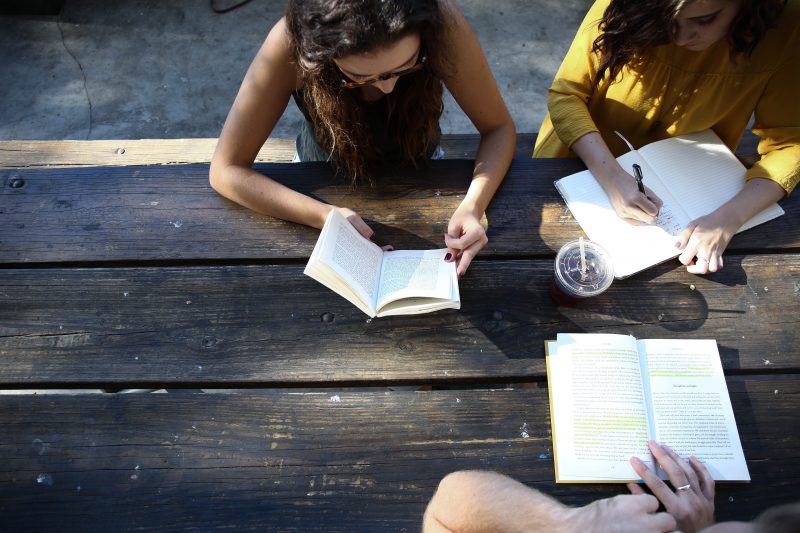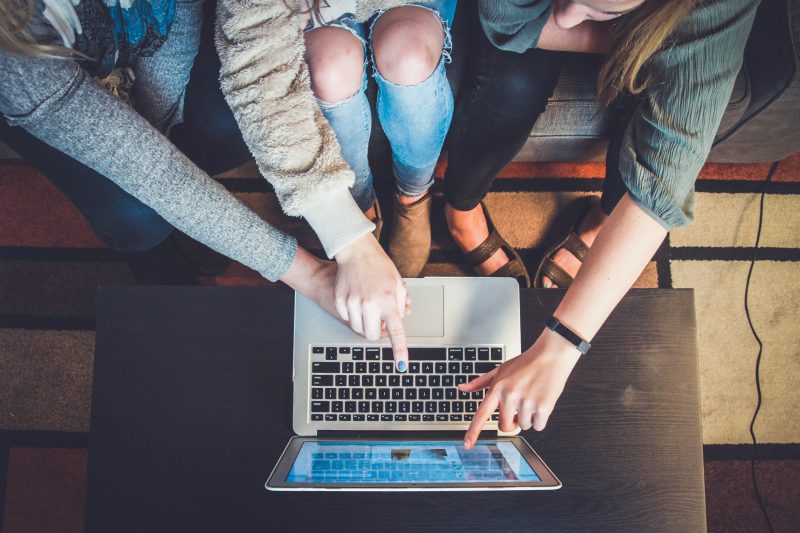Did you get everything done you wanted to yesterday? What about the day before? As productive as we try to be, sometimes it just doesn’t cut it.
But it’s not because there aren’t enough hours in the day, it’s because we usually don’t know how to prioritize our future selves wisely! So we’ve rounded up the best productivity tips from our favorite behavioral economists and psychologists, from Dan Ariely to Malcolm Gladwell. Here are their favorite pieces of productivity advice, backed by science:
1. Procrastinate
Adam Grant, Organizational Psychologist, Author of Give and Take
According to Adam Grant, the best way to get something done is to start, and then leave it unfinished.
“Psychology research reveals that we have a better memory for incomplete, rather than complete, tasks,” explains Grant. “Complex tasks are often better handled in the back of our minds, and that’s often true of creative tasks.” (Forbes) In other words, if you need to think up a creative idea or craft a response, your brain will do a better job if it’s given time to contemplate.
“I’ll start working, put it aside, and sometimes I’ll wake up the next morning with a solution, or I’ll find one when I exercise. If I left a sentence unfinished, more often than not, I can literally dive right back into where I was.”
So to get things done the right way, you should put them off. We can get on board with that.

2. Remember why you’re doing it
Charles Duhigg, author of Smarter, Better, Faster and The Power of Habit
To be more productive, remind yourself of your motivation in the first place, says Charles Duhigg. To do so, connect your to-do to a bigger, more important goal. “Once we start asking why [we’re doing something], small tasks become a larger constellation of meaningful projects, goals, and values,” says Duhigg in his book Smarter, Better, Faster.
“Self-motivation flourishes when we realize that replying to an email or helping a coworker on its own might be relatively unimportant. But it is part of a bigger picture that we believe in.”
So how do we build up that motivation? Duhigg explains by example, telling a story of a cancer researcher who hates grading papers. Every time he sits down to grade a paper, he goes to a mantra: ‘If I grade this student’s paper, the university gets their tuition dollars, so they can pay for my research, so I can find out things about cancer, so I can save people’s lives. Therefore, by grading the students’ papers, I’m saving people’s lives.’ If we look hard enough, there’s undoubtedly a bigger ‘why’ to everything we do.
3. Go with your instincts
Malcolm Gladwell, author of Blink, The Tipping Point, and others
We’re in luck: our best decisions are the ones that are made in the blink of an eye, according to Malcolm Gladwell. This concept is called ‘Thin Slicing,’ and was at the core of his book Blink.
Over multiple studies, Gladwell found that we make better decisions based on small amounts of information. Our judgments don’t improve as we are given more and more info – in fact, our decisions often become worse! That’s because as humans evolved, we trained our brains to sift through large amounts of information quickly so we can make decisions in a hurry, in case we’re under threat.

Photo by Watchlist
What does this mean for productivity? We can save some serious time knowing that our best decisions are often the ones we made quickly, from the thinnest slice of experience. So the next time you think you need to dive into some deep research in order to make the best decision, science says go with your gut instead.
4. Put your happiness first
Shawn Anchor, Psychologist, author of The Happiness Advantage
When it comes to productivity, happiness pays off, big time. Research shows that if you’re more positive, your brain will have a “happiness advantage.” That means it’ll perform significantly better than it would at a negative, neutral, or stressed state. This happens because dopamine doesn’t only make you happy, but it also turns on all of the learning centers in your brain.
“We’ve found that every single business outcome improves” with the happiness advantage, according to Anchor. “Your brain at positive is 31% more productive. You’re 37% better at sales. Doctors are 19% faster.” (TED)
But how do we reach this positivity point? “In just a two-minute span of time, 21 days in a row, we can actually rewire our brains, allowing them to work more optimistically and successfully.” To do so, do one of these three things for the next 21 days:
- Write down three things you’re thankful for at the end of each day
- Meditate
- Do random acts of kindness for others (count us in)
5. Create a 15-minute list
Carson Tate, Psychologist, founder of Working Simply
We all have those small, pesky tasks that stay on our to-do list forever, ones that we never think we’ll actually get done. Productivity expert Carson Tate has the cure: create a list of tasks you can get done in 15 minutes. Have it with you at all times, so you can whip it out during the micro-segments of your day. That way, you can turn those odd moments of time, like standing in line at the supermarket or sitting in the doctor’s office, into productive micro-segments of work.
“This list is also your go-to when you feel the tug of procrastination. You can quickly complete a task, which gives you a little energy boost, helping you transition into working on a more challenging or complex project.” (Business Insider)
When we’re putting off a big to-do, sometimes all we need is a quick boost of energy.
6. Do something you love
Dan Ariely, Behavioral Economist, author of Predictably Irrational and others

Sometimes, it’s hard for us to get stuff done because tasks can feel completely dreadful. You know what we’re talking about. To combat this, renowned behavioral economist and Lemonade’s Chief Behavioral Officer Dan Ariely suggests choosing a ritual you love and pairing it with a productivity-related activity. He even does this himself:
“I connect something I love, which is my coffee ritual, to something that I love in principle, but not every moment of it, which is writing. It’s a conditioned response, where I start working and I’m enjoying the coffee and the writing at the same time.” (Business Insider)
To really make this work, you have to pay close attention to your ritual, instead of doing it mindlessly. That way, your brain will associate this enjoyable ritual with the task, making it much easier to get it done. “I listen to the machine as it grinds the beans, I look at how the coffee is being dripped, I take it, I smell it, and I think about it. And I take this very special cup of coffee and take it to my desk,” Ariely describes. So whether you love cappuccinos, Drake songs, or ice cream, make sure to pair it with your next big to-do!
7. Notice your energy levels
Ron Friedman, Psychologist, author of The Best Place to Work
Realistically, we can’t be equally productive at every hour of the day. At some points of the day, we feel more energized, and at others, all we want to do is lay in bed and watch Netflix. And realistically, what good are productivity tips if you don’t have enough energy to act on them? Times like these are not the best moments to get stuff done.
“It’s not what you do, so much as when you do it,” explains Ron Friedman.
“Research shows that our cognitive functioning fluctuates throughout the day. On average, people are considerably worse at absorbing new information, planning ahead, and restricting distractions as the day progresses.” (HBR)
The better you are at matching tasks to your energy level, the more you can get done with less effort.
Dan Ariely also points out that the majority of people are at their most productive between 9 and 11 am. So pay attention to which hours of the day you tend to be at your best, and focus on your biggest tasks then.